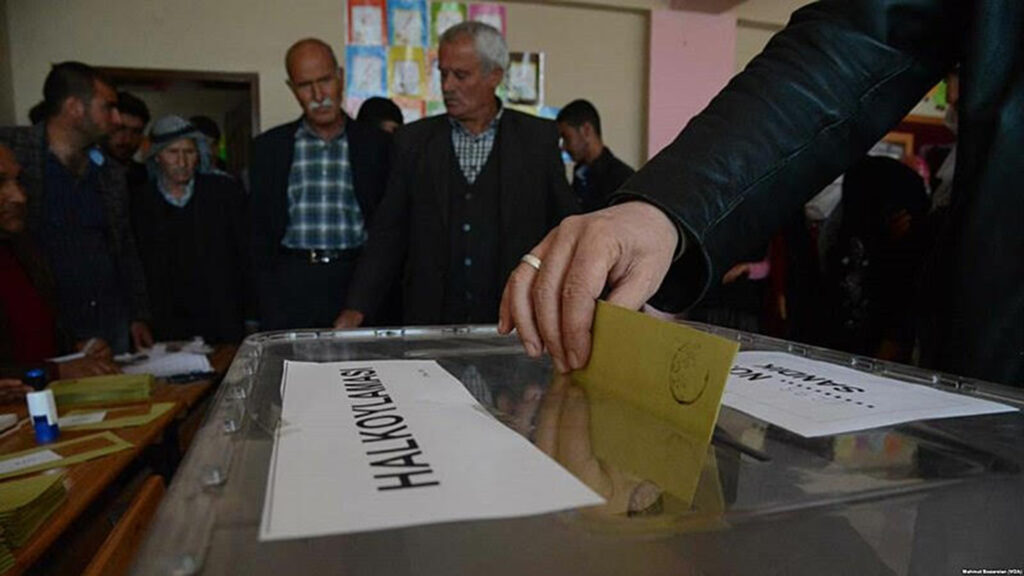For many at this time of year, Greece offers the opportunity to travel abroad for an affordable, warm break. However it is not only the tourist season, but also campaigning that is heating up.
Greece’s voters will be heading to the polls this Sunday, a mere 35 days after delivering their verdict that yielded a hung parliament. Despite gaining more votes (both in physical ballots and percentage), the ruling ‘New Democracy’ party fell 12 seats and lost their parliamentary majority, albeit just by just five seats.
What happened in May?
In most other parliamentary democracies, should a party secure a 20% victory over all other parties, the highest for any party since 2009, and for New Democracy since 2007, one would be looking at landslide territory. Not in Greece.
In this election, the number of parties that are given parliamentary seats is determined based on whether they can clear a 3% threshold – a form of proportional representation not tried in Greece for over 30 years. This may be seen as a good way to root out extremists. However in a country that so recently had 18 open neo-Nazi MPs, this may not be an effective barrier to this. The more parties that pass this threshold, the higher the share of the vote needed for a party to secure a majority.
Greece’s president appoints the prime minister, who in turn is the leader of the party who has secured an absolute majority (50%) of seats in the Hellenic Parliament on more than 45% of the popular vote. If this does not happen, then the constitutional quirks of Greece’s political constitution take force – and we are seeing this play out now.
President Sakellaropoulou has given three days to ‘New Democracy’s’ leader, incumbent prime minister Mitsotakis, alongside the leaders of the second and third placed parties the opportunity to form a government. Given the stark political differences between New Democracy and the runner-up, Alexis Tsipras’ ‘Syriza’, a democratic socialist, and the third-placed PASOK social democrats, Mitsotakis ruled out any prospect of a coalition.
One may assume that, given the tiny margin by which they fell short, New Democracy may have other centre-right allies to rely on. However, given the ideological intensities of the smaller left wing parties (no doubt exacerbated by Greece’s turbulent recent economic history), it may be a wise decision for New Democracy to steer clear from such polar opposite bedfellows.
Proportional votes = proportionate chaos
With a subsequent election now posted for the 25th June, the polls once again look favourable for New Democracy. Furthermore, this system of proportional representation that saw the party fall short, will be replaced with a pro-majority electoral system designed to supplement the largest party with a further 50 seat bonus.
Turning leftwards, it is clear that Greece’s social democratic and democratic socialist bloc is significantly fractured. Were all left-leaning parties to join under one banner, Greece would once again have a Tsipras-led majority government that has been characterised by intense austerity and EU bailouts.
Encouragingly for the more moderate social democrats in PASOK, the collapse of Syriza’s vote share from over 31% of the vote to 20% has translated into a gain of 3.3% in votes, and 19 seats to sit comfortably in third with 41 seats – its largest delegation since 2012 when it was painted as the architect of the Greek economic collapse.
A Cameron-esque campaign
Mitsotakis managed to cut through many of the narratives critical of his premiership: that it was mired in spying scandals; rising inflation; concerns over the resilience of the rule of law; and a lacklustre response to the devastating Tempi train crash in February this year in which 57 were killed. Despite this, New Democracy’s message was clear and emphasised a similar message to the Democrats’ in last year’s US midterms – yes, things are bad, but we’re better than the others.
Standing in front of the Acropolis, Mitsotakis’s closing pitch to voters before last month’s election was “do we want stability or continuous uncertainty?” Much like the British ‘coalition of chaos’ political tool, Mitsotakis leveraged his chequered record in government to win the support of apathetic voters who lost faith in the Tsipras government but see no other alternative that will offer them stability during a time of economic uncertainty and falling wages.
Comparisons can be drawn between the Conservatives’ 2015 victory, and this election. Both David Cameron and Mitsotakis are liberal conservatives fighting off the more populist tendencies on their right flanks; both have had their governments characterised by cuts, be it through austerity or by a 10% wage fall; and both faced a left-wing party that had been discredited in the eyes of the electorate during their last spell in office. In this election both ‘coalition of chaos’ and ‘strong and stable’ may prove to be winning slogans…
Campaigning as a pre-emptive winner
With eyes now set on Greece’s second election on Sunday, Mitsotakis looks poised for a significant majority. Whilst New Democracy are appealing to voters to not take this for granted, opposition parties have already effectively conceded defeat and are now urging voters to choose their platforms as a means to reduce the inevitable majority Mitsotakis will achieve.
Despite the majority of the proportional system being scrapped, the 3% threshold mentioned earlier will remain. Should the Victory Party (hard-right) or the Course of Freedom (left-wing populist) parties manage to gain the 0.1% each that deprived them of representation last month, then New Democracy’s majority looks set to be smaller. Much like the 2015 UK general election smaller parties may be marginalised, but will still play an important role in what parliament looks like afterwards.
With New Democracy and Mitsotakis’ confidence high, he is campaigning as if he has already won next week’s ballot, pushing his key pledges to restore Greece’s coveted investment grade status, improve the country’s healthcare infrastructure, and increase the amount of women in the workforce and the disposable income of workers.
With Sunday’s election result looking somewhat certain, many analysts will look to see how it can put Greece on a path of economic and political stability – something it has lacked in the past decade. In this election at least, ‘strong and stable’ may be the winning slogan…











